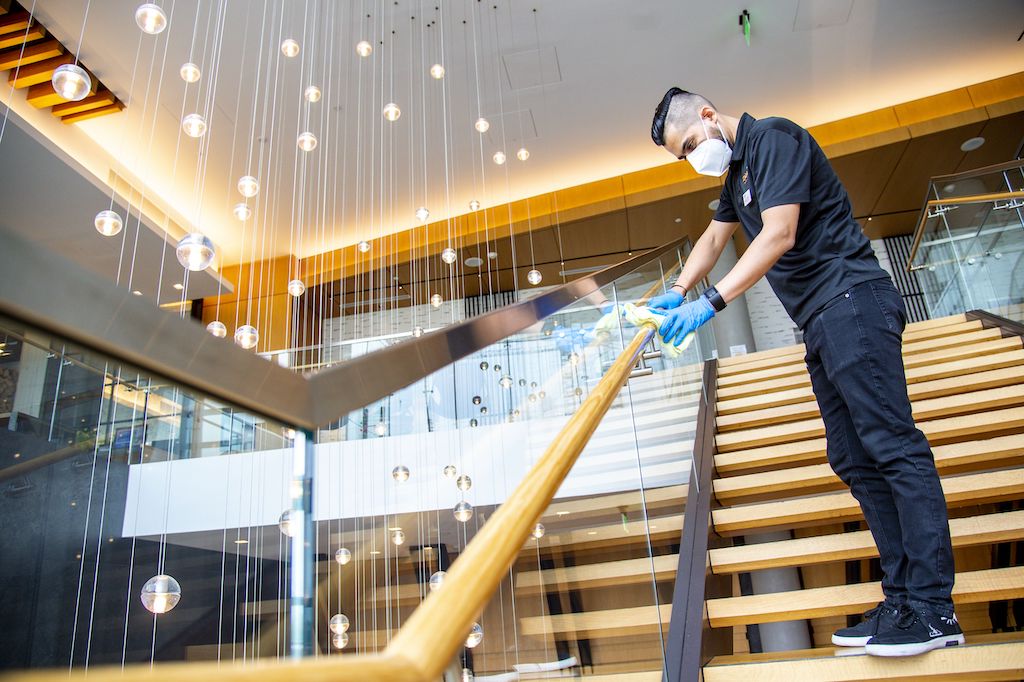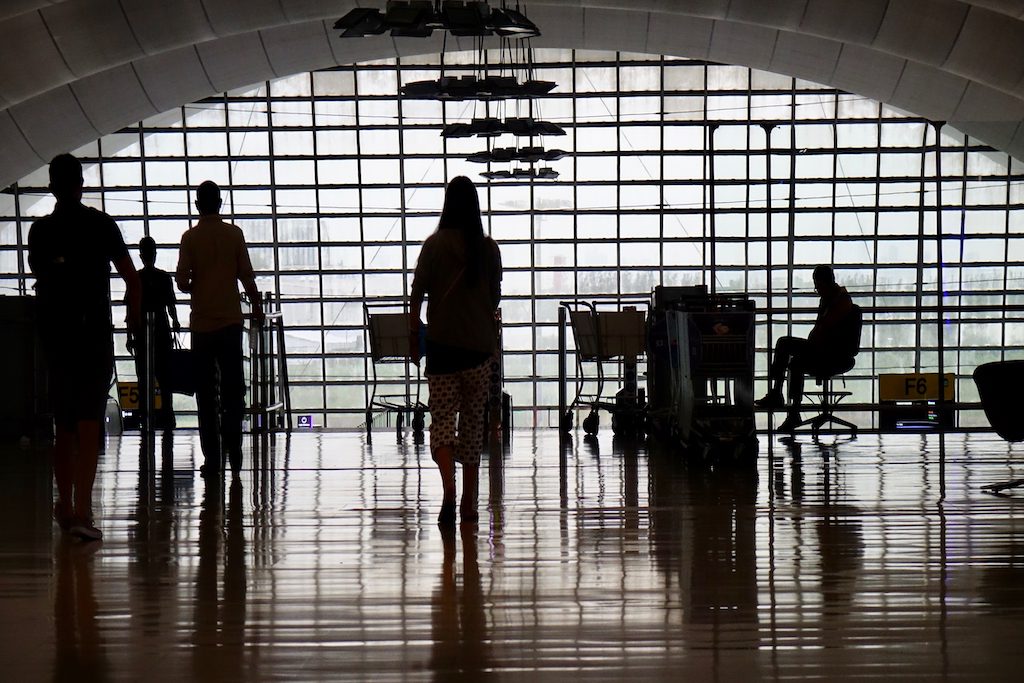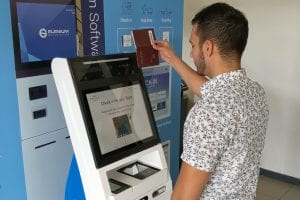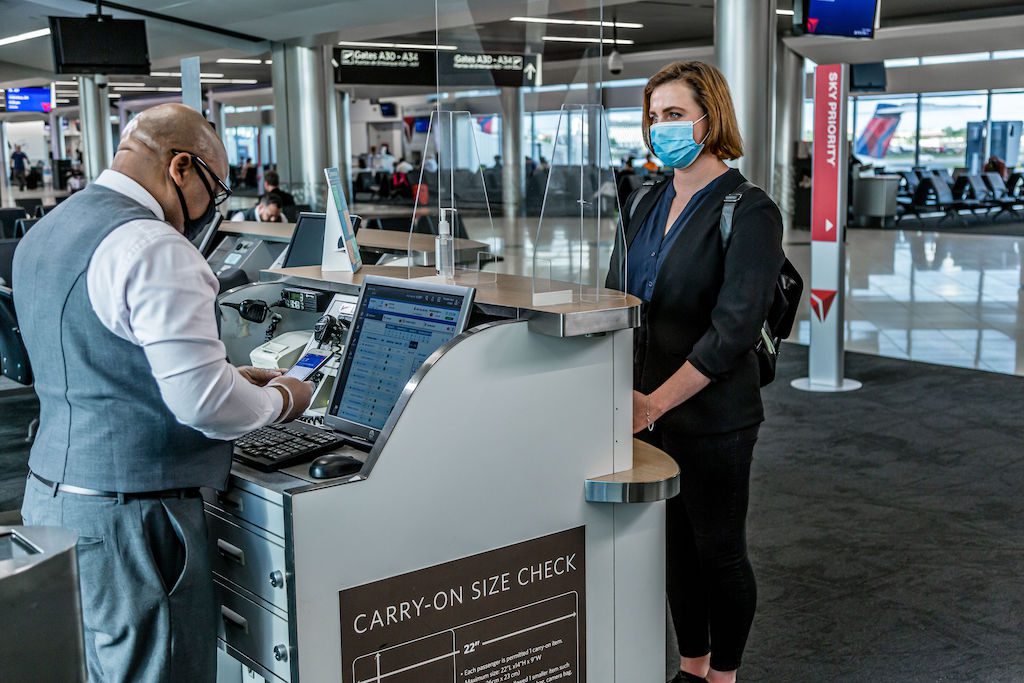Skift Take
Hygiene theater. Pivot. Revenge travel, and many more. It looks like it's going to take a lot more than a pandemic to end the travel industry's love of pithy, jargony buzzwords and phrases.
The travel industry loves its jargon and buzzwords, the words and phrases that quickly become overused staples of the lexicon. They’ve been one of Skift’s pet peeves for some time now.
The pandemic did not spare us the proliferation of more of these all-too-clever words and phrases. Please see below the list of pandemic-era buzzwords that the Skift staff identified and quickly hopes become part of history.
HYGIENE THEATER
From the moment health officials told us to wash our hands on regular basis, legions of workers were called into action in travel to do surface cleanings in overdrive. The idea being if I see a railing being cleaned, or a doorknob, or a jet cabin being fumigated with workers in spacesuits, I am safe. But was it all overkill? Hence, the creation of “hygiene theater,” which we believe was first mentioned in this context in this Bob Cooney post from March 6. At Skift Global Forum in September, Marriott CEO Arne Sorenson embraced hygiene theater as a way to provide maximum comfort to his customers.
Here’s hoping the curtains falls of “hygiene theater” in 2021.
TRAVEL BUBBLE
First mooted in early May, between New Zealand and Australia, the idea is that countries and regions that have done a good job of reducing and maintaining low coronavirus case counts — or didn’t have high case counts to begin with — could open up cross-border travel with one another after opening up domestic travel. Citizens can move freely without quarantine between countries with such an agreement.
Let’s just say the idea fizzled out in 2020 faster than bubbles in bad champagne due to second or third waves of cases. Perhaps better luck in 2021.
New Normal
As if there was ever a normal. It did not a pandemic for a lot of executives to know there is no such thing as normal anymore in today’s marketplace. The winners are those who can roll through one abnormal after another.
WANDERLOST
Coined to describe withdrawal symptoms individuals experience as a result of lockdowns. According to a Klook study, symptoms include torn between visiting family and escaping from them (either way travel wins), or the unhappiness about being unable to unplug from work the way only travel can achieve.
This “missing travel” syndrome also shows up in Booking.com’s Future of Travel study, which ineluctably leads to another buzzword — Wandermust. Booking.com expects a post-lockdown lift-off with a few wandermusts that include dream destinations and milestone travels such as wedding and anniversary celebrations.
WORKATION
It was actually most everybody’s dream pre-Covid — who doesn’t want to work like they are on a vacation, or combine work with vacation? Empty hotels rush to feed the dream and fill up their rooms. Take Marriott’s three-tiered Work Anywhere. The day pass allows guests to book a stay from 6 a.m. until 6 p.m. The Stay Pass includes an overnight stay but also the early 6 a.m. check-in and late 6 p.m. check-out. The Play Pass for multi-day stays comes with a business concierge and supervised activities for children.
Or, how about a seven, 14 or 21-day workation sandbank experience at The Nautilus in the Maldives — work on your own sandbank with your own personal desk, sun canopy and portable high-speed WiFi.
Not sure if we want to leave behind the word workation!
QUARANTEAM
A quaranteam is a bubble of people who create their own tight-knit social circle that doesn’t interact with others outside their group, as defined by Healthline. It’s for those for whom zooming or phoning just won’t fill the void; they need daily interactions with people physically.
This has extended to co-workers quaranteaming together and in some cases creating a new segment for travel & tourism, such as a seven-person team from Accenture who decided to uproot themselves from their various home bases to an Airbnb in Hong Kong for a quaranteam.
BLURSDAY
When you’ve been sheltering in place for so long because of a global pandemic you have no idea what day it is as they all blur together. Blursday!
Before the pandemic, it was a term that described a drunk or hungover day, according to Urban Dictionary.
Blursday is one of Oxford English Dictionary’s words that define 2020. Each year, its lexicographers pick only one word. This year, however, it can’t do with just one. Aside from blursday, its other defining words 2020 include coronavirus, lockdown and social distancing.
But of course.
REVENGE TRAVEL
The idea here that people are so angry that they have been in lockdown for so long that they feel a sense of revenge — the revenge to travel again. The term has its origins with the idea of revenge spending that originated after the Cultural Revolution in China.
That anyone would approach the prospect of travel as “revenge” is still lost on us. Be happy. Enjoy it when it comes back.
PIVOT
Skift quickly fell victim to this one — pivot, as in companies, organizations having to quickly change strategies to survive the pandemic. The word was everywhere, in stories, in headlines, rolling off tongues as sound bites during interviews.
It’s been put on the informal word ban list at Skift. How about adapt? Modify? Reshape? Evolve?
Pivot away from pivot. Get creative, people.
CONTACTLESS
Before the crisis, a mark of true hospitality was “high touch” service. But during the pandemic, everyone has wanted “low touch.”
The contactless tech trend left us with mixed feelings. On the one hand, anything that speeds up hotel and flight check-in is a lasting gain. But we worry that removing the human faces from other parts of travel will make the experiences feel more soulless — both for travelers and the sector’s workers.
BUILD BACK BETTER
Good enough for the Biden-Harris campaign, good enough for travel apparently. We quickly heard travel executives using this phrase to speak optimistically about travel post-Covid.
Honestly, we can appreciate the alliteration. But it makes an awful big promise that we aren’t see we will see fulfilled.
Here’s hoping both Joe and Kamal and the travel industry make it happen in 2021.
BERTH CONTROL
In pandemic times, this refers to the cruise industry’s daunting efforts to berth.
An early incident was in February when Thailand refused to allow the Holland-US MS Westerdam cruise ship to dock at Laem Chabang Port in Chonburi, south east of Bangkok, after having been turned away by three other countries who were concerned about the spread of coronavirus.
In the US, as it turns out, cruise lines are suspending operations through December 31. The Centers for Disease Control and Prevention has issued a framework for a phased resumption of cruise ship operations after a no-sail order issued in March in response to the coronavirus pandemic was to expire on October 31.
LOCKDOWN
Travel’s biggest nemesis, a lockdown is a requirement for people to stay where they are, usually due to specific risks to themselves or to others if they can move freely. The term “stay-at-home” or “shelter-in-place” is often used for lockdowns that affect an area, rather than specific locations.
Did you know that the term is used a prison protocol that usually prevents people, information or objects from leaving an area, according to Wikipedia. The protocol can usually only be initiated by someone in a position of authority (that, we know).
Well, there are 1.5 billion international tourists who arrived somewhere last year who now feel imprisoned by lockdowns of borders due to coronavirus which prevent them from traveling this year.
ZOOMSGIVING
Despite warnings from health officials to stay home for the Thanksgiving holiday, people got on airplanes to visit families, setting new TSA screening highs at airports since the start of the pandemic. That didn’t stop folks from making the case to share the holiday over Zoom, making it Zoomsgiving.
NO MASK, NO FLY
Airlines quickly went from suggesting passengers wear masks to requiring them, or else. The “or else” was being placed on a fly-ban list. This is buzzword we can get behind.
HOFFICE
This mash-up of home and office is h-orrible, but it exists. It’s been around many years, and there’s even a company going by the same name that wants to turn your apartment into a coworking space.
But the fact is, there’s no need to use this term because hoffices are everywhere, and do not warrant their own buzzword. While the term raises a smirk on the first listen, it then only goes on to remind you how many freedoms once taken for granted — including awful commutes or awkward conversations with colleagues — still remain out of bounds.
It’s a house arrest for the hoffice in 2021.
HOESTSCHAAMTE
Loosely translated as coughing shame – a feeling of shame when you cough. Related is “hoestshamen” (verb) – calling someone out for coughing in a public place.
ZOMBIE LUXURY
Five stars that are trying to get close to their former rate and keep up appearances but when you check in, there’s no bellman, the phone rings 20 times, and the performative service they use to justify their higher rates are completely gone.
The Daily Newsletter
Our daily coverage of the global travel industry. Written by editors and analysts from across Skift’s brands.
Have a confidential tip for Skift? Get in touch
Tags: contactless, pandemic, travel
Photo credit: Hygiene theater on full display. Hilton's new global cleaning standard is the latest in a wave of hospitality cleanliness protocols aimed at calming guests as they begin to travel following the coronavirus pandemic. Hilton





